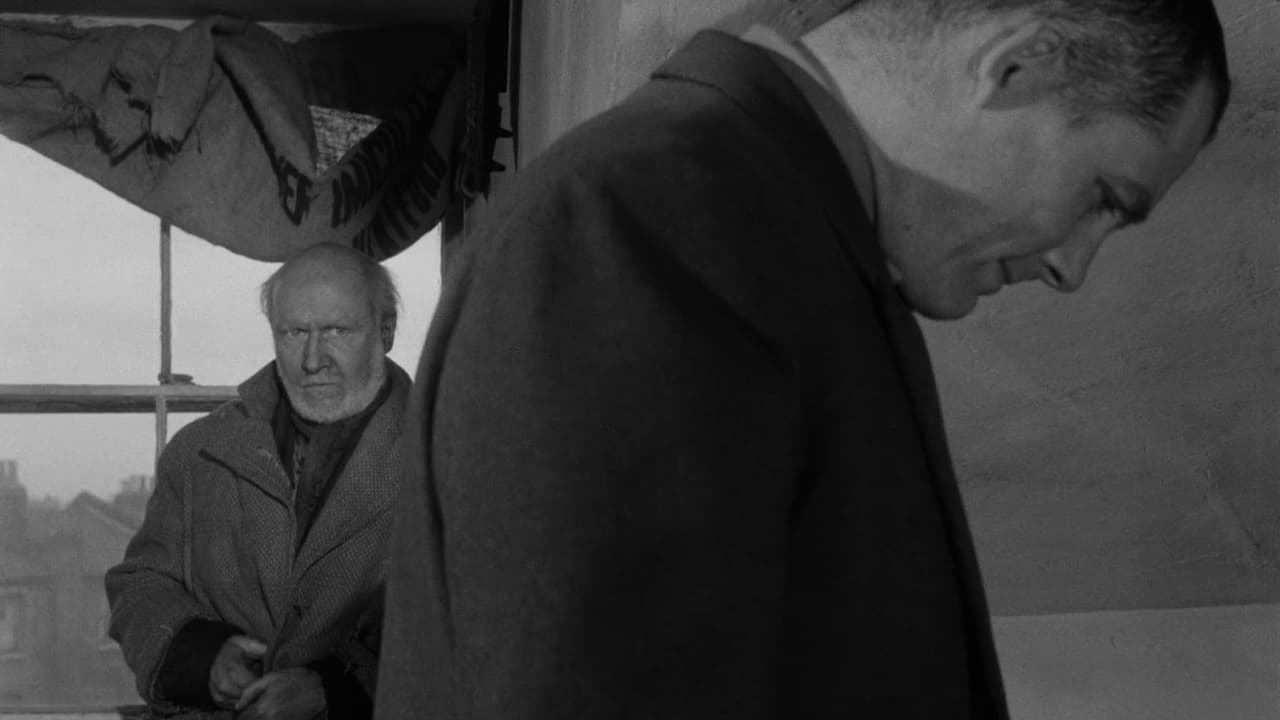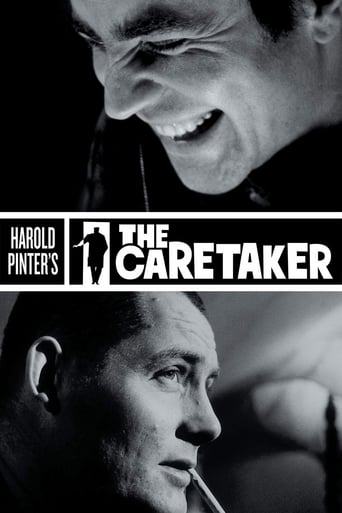

Sorry I have to disagree with most folks here. This is a disagreeable movie from the get go. Donald Pleasance's character never shuts up and he's not likeable at all, if I were Robert Shaw's character I would have given him a fiver for a drink and sent him on his way, under no circumstances would I allow him in my house. Alan Bates' character is completely repugnant and completely wacko. All the talk talk talk might have worked well for a stage play but for a film version it was painful. If they were going to film an original stage play why not do a musical at least, it would have been wonderful if they had recorded the original casts of My Fair Lady, Fiddler On The Roof, The Sound Of Music, etc. and not this annoying dusty old thing with cantankerous characters you yourself wouldn't take a shine to if you met them in person. Pass.
... View MoreWhat is the point of anything ? Weary, stale, flat, unprofitable.Three aspects of one persona. That is the point and message of this play and movie. If we could get down to Sidcup, get our papers, discover our identity, it would help. We could then finish the shed, and get all the rooms in the house decorated, and then rent them out. But it doesn't seem likely. We go round in circles in our dingy little car. Our current situation is just not our bag. End of story. Gripping masterpiece, not equalled by anything else from Pinter, nor by the actors. In fact, an acting masterclass, provided by the script. Once seen, never forgotten. No sex, no drugs, and any violence is merely virtual. Wonderful. But dated. Like Hamlet.
... View MoreThis three-hander piece has no plot to speak of and, given author Harold Pinter's (typically) obscure intentions, attention must be paid constantly (not an easy task, having to contend with both the heavy British accents on display and the rather low volume of the audio itself); after having gone through the various supplements on the exemplary BFI DVD, the meaning of it all is still very much open to interpretation! The performances, however, are extremely impressive and the fact that all three actors had already appeared in the various stage versions certainly helped: Donald Pleasance and Alan Bates have showy roles that are often broadly comic, but a brooding Robert Shaw is unusually subdued for the most part - though the character's speech about his traumatic spell in hospital, where he suffered at the hands of a sadistic doctor, is as riveting as the actor's celebrated (and similarly quietly-spoken) one about the transportation of the Atom Bomb in JAWS (1975). Though making only minute concessions to cinematic conventions, Donner's handling (abetted by the stark cinematography of Nicolas Roeg and some weird ambient sounds by Ron Grainer in place of a score) ensures that the whole doesn't come across as merely a piece of filmed theatre; it still feels at odds even with the contemporaneous "Kitchen Sink" films of the British New Wave, with which style THE CARETAKER has forever been identified! Pinter's dialogue - alternately scathing and compassionate - is remarkably adult for its time, and the project only came through with the intervention of some celebrated admirers of the play: Richard Burton, Leslie Caron, Noel Coward, Peter Hall, Peter Sellers and Elizabeth Taylor, among others! I've watched the following Pinter-scripted films: THE SERVANT (1963), THE PUMPKIN EATER (1964), THE QUILLER MEMORANDUM (1966), ACCIDENT (1967), THE BIRTHDAY PARTY (1968), THE GO-BETWEEN (1970), THE LAST TYCOON (1976) and THE FRENCH LIEUTENANT'S WOMAN (1981); however, only THE BIRTHDAY PARTY was adapted from his own work (also featuring Shaw and largely revolving around three eccentric characters) and it's similarly intractable - if still required - viewing.
... View MoreThe Caretaker is a truly great play and lends itself only to minimal tinkering for the screen. Thank goodness, that's what the makers of this film decided to do, so the film is barely an adaptation. One or two short scenes are moved out of Aston's claustrophobic attic room, but for the most part we're stuck in there, just like the play. I'm too young to have seen the original cast on stage, so it is good to see how Alan Bates and Donald Pleasence must have plied their craft on the stage. Robert Shaw does an excellent job of Aston, a part that is often under-rated as it is best performed under-stated. I have seen two fine productions of this play on the stage, back in the 70's I saw Max Wall play the lead and more recently the mighty Michael Gambon supported brilliantly by Rupert Graves as Mick and Douglas Hodge as Aston. If you can get to see a great production of this play, I recommend it for the stage rather than film. In the absence of a fine cast just down the road, this film is a super second best.
... View More